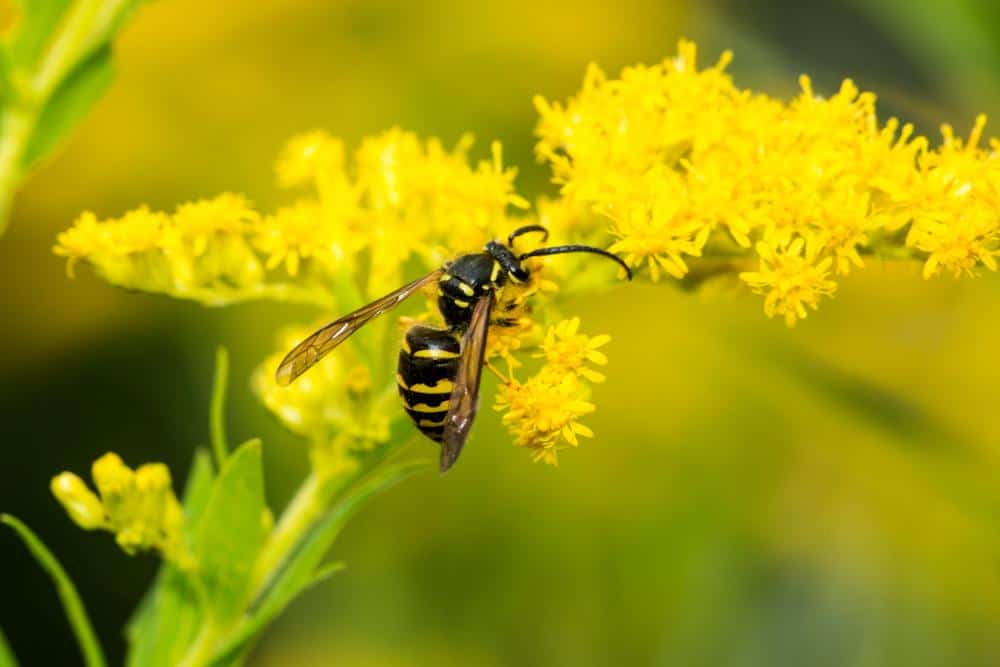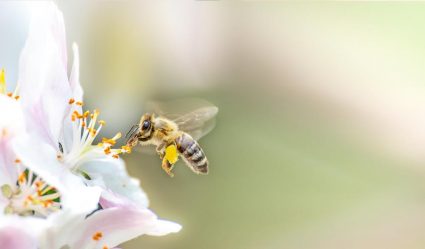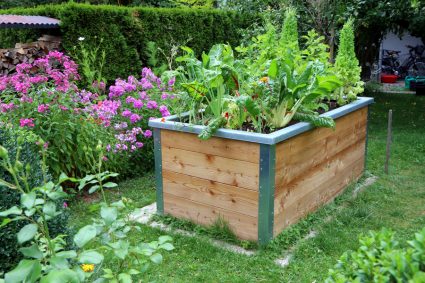
Wasps, with their distinctive yellow and black bodies and fearsome reputation, are a common sight in many parts of the world. These insects, while essential for the ecosystem, can be a nuisance and even dangerous if they build their nests too close to human dwellings. Many people wonder about effective ways to deal with wasps, and one question that often comes up is, “Does salt kill wasps?” Let’s explore this topic in-depth.
While salt can dehydrate and potentially kill some insects, there is no concrete scientific evidence to suggest that it can kill wasps. The effectiveness of salt guns, which shoot table salt, against wasps is also questionable. Therefore, it’s safer and more effective to use other methods, such as pyrethroid-based insecticides, dish soap and water, or professional pest control services.
The Biology and Behavior of Wasps
Before we delve into the effectiveness of salt on wasps, let’s take a brief look at their biology and behavior. Wasps are insects belonging to the order Hymenoptera and the suborder Apocrita. They are known for their pointed lower abdomen and relatively hairless bodies. Adult wasps have three pairs of legs, antennae, and three body segments: head, thorax, and abdomen. The female wasps have an ovipositor for laying eggs, which is modified into a stinger in some species.
Wasps can be either solitary or social. Social wasps, like yellowjackets and hornets, live together in a nest with an egg-laying queen and non-reproducing workers. These wasps play a crucial role in controlling other insect populations and are also primary pollinators for certain plants.
Salt and Wasps: A Connection?
The Bug-A-Salt gun, a device that shoots table salt to kill insects like flies, has led some people to believe that salt can also kill wasps. While salt can dehydrate insects and potentially kill them, there’s no concrete scientific research that proves salt can kill wasps directly. The effectiveness of salt guns against wasps is questionable, and may depend on factors such as the distance from which the salt is shot and the amount of salt used.
Risks and Dangers of Using Salt to Kill Wasps
Attempting to kill wasps with salt can pose some potential dangers. Wasps can become aggressive when threatened and release an alarm pheromone that alerts the colony to attack. If you fail to kill a wasp with salt, it may retaliate by stinging, which can be painful and even dangerous for those with allergies.
Moreover, improper handling of salt guns can also pose safety risks. The manufacturer advises treating the gun as a loaded firearm and not pointing it at any person, pet, or valuable personal property.
Other Effective Methods to Kill Wasps
If salt isn’t an effective method to kill wasps, what alternatives are available? Here are some methods that are known to work:
- Pyrethroid-based insecticides: These are commonly found in commercial wasp sprays.
- Dish soap and water: A mixture of these can be used to kill wasps.
- Peppermint oil: Mixed with water, it can serve as a wasp repellent.
- Powder dust pesticide: Ideal for ground wasp nests.
- Boiling water: Pouring it onto a wasp nest can kill scores of wasps.
- Apple cider vinegar, sugar, and water: This mixture can serve as a homemade wasp repellent.
Regardless of the approach you choose, always exercise caution when dealing with wasps. If you’re unsure about how to handle a wasp infestation, contact a professional pest control service for assistance.
The Dangers of Wasp Stings
Wasp stings can be dangerous due to allergic reactions, infections, and venom toxicity. The most common symptoms include pain, swelling, redness, and itching at the site of the sting. However, some people may experience severe reactions that require immediate medical care.
In summary, while salt can kill some insects, its effectiveness against wasps is questionable at best. More reliable methods are available to deal with wasp infestations. Remember, when dealing with wasps, safety should always be your primary concern.
Frequently Asked Questions
What is the difference between wasps and bees?
Wasps and bees belong to the same order, Hymenoptera, but they are different in several ways. Bees are generally more robust and hairy, adapted for pollen collection, while wasps have slender bodies with less hair. Bees feed on nectar and pollen, making them important pollinators, while wasps are predators that feed on other insects.
Are all wasps aggressive?
Not all wasp species are aggressive. Social wasps like yellowjackets and hornets can be aggressive, especially when they feel their nest is threatened. However, solitary wasps are generally non-aggressive unless provoked.
Can wasps sting multiple times?
Unlike bees, which die after stinging because their stingers get stuck in the skin of their victims, most wasps can sting multiple times. This is because a wasp’s stinger is smooth and can be easily withdrawn after an attack.
How can I prevent wasps from building a nest near my home?
There are several preventative measures you can take to discourage wasps from nesting near your home. These include sealing openings and cracks in your house where wasps could build a nest, keeping your garbage bins sealed to avoid attracting wasps, and using wasp traps or repellents around your property.
Do wasps die in winter?
In most species of social wasps, the workers and males die off in winter. However, the fertilized queens survive by hibernating in a protected spot. In spring, the queen emerges to start a new colony.










